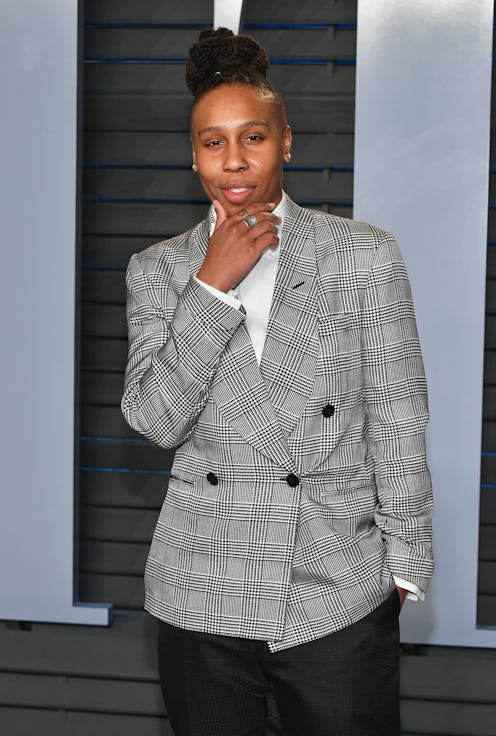Entertainment
Lena Waithe Explained Consent, & Everyone Needs To Print It Out & Hang It Up

When the topic of sexual misconduct came up during her cover story with Vanity Fair, Lena Waithe discussed consent and the importance of defining it. Writer Jacqueline Woodson mentioned the allegations against Waithe's colleague, Aziz Ansari, and Waithe's insightful response was worded in such a wonderful way that it certainly bears repeating.
Waithe, 33, is a rising star and force to be reckoned with. Alongside Ansari, she won an Emmy in 2017 for co-writing the "Thanksgiving" episode of Master of None — Ansari's Netflix series that she also stars in.
Because of her close working relationship with Ansari, this isn't the first time Waithe's been asked about the sexual misconduct claim against her co-writer. Her response in Vanity Fair, however, doesn't focus on Ansari alone. Instead, Waithe speaks about how we're defining consent, and why it's so important that people continue to clarify their comfort while being intimate.
“At the end of the day," Waithe started in regards to the allegation against Ansari, "what I would hope comes out of this is that we as a society ... educate ourselves about what consent is — what it looks like, what it feels like, what it sounds like."
"I think there are both men and women who are still trying to figure it out," she continued. "We need to be more attuned to each other, pay more attention to each other, in every scenario, and really make sure that, whatever it is we’re doing with someone else, they’re comfortable doing whatever that thing is, and that we’re doing it together. That’s just human kindness and decency.”
Waithe's statement about consent makes an important point — a point that has gotten considerable attention following the claims against Ansari. The definition of "consent"— whether verbal or physical — can often become blurry during intimate situations. But what makes her response in Vanity Fair so great — the part about how defining consent is "just human kindness and decency," in particular — is that it's something that should be a given. It's something that should be so simple, but it's not.
The way that Ansari's accuser, for example, alleges he pressured her into sex didn't break any laws — but that doesn't mean what she alleges isn't wrong. It's possible that he and his date defined "consent" in different ways, but it's exactly this kind of gray area that Waithe is trying to shed some light on.
Ansari was accused of sexual misconduct on Jan. 14, when a woman he went on a date with claimed that the star pressured her into sexual activity. The woman claimed that she repeatedly expressed discomfort with the situation and that Ansari continued to ignore her verbal and physical cues. Ansari, for his part, said in a statement that "we ended up engaging in sexual activity, which by all indications was completely consensual," and that he was "surprised and concerned" to learn that the woman had felt otherwise when she texted him the next day.
Waithe focused on creating a dialogue about clarifying consent earlier this year, as well, during a January interview on KPCC radio show The Frame. "Here's the truth," she said in regards to the Ansari allegation. "In every situation, it's not always black-and-white. And I know that's simple for people, and it's easy for people to [ask], 'Whose side are you on?' There are no sides, really, in some of these scenarios."
"I think a big thing is, we have to have a dialogue," she continued. "And I think if we're unwilling to have a dialogue we're gonna continue to keep hitting our heads against the wall. We have to start reeducating ourselves about what consent is, what's appropriate behavior at the workplace. We have to create codes of conduct."
Whether it's the first date, the fifth date, or 10 months in, it's imperative that people are crystal clear about the way their partner expresses consent. It's not the same for everyone, and it's not necessarily the same in every situation. And while it may not be the most comfortable conversation to have with someone you're seeing, it's definitely one of the most necessary.
If you or someone you know has been sexually assaulted, call the National Sexual Assault Telephone Hotline at 800-656-HOPE (4673) or visit online.rainn.org.